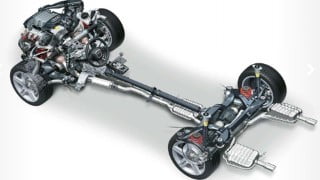Automotive Engineering; Digital Powertrain Control Systems
Learn about the crucial role of electronics in engine/powertrain control in automotive engineering. Explore various control modes and their importance in optimizing vehicle performance. Ideal for mechanical, automobile, and automotive engineers, as well as IC engine designers and enthusiasts.
What you’ll learn
- Role of Electronics in Engine/Powertrain control. Precise role played by the electronics in the area of the automotive engineering.
- Various control mode of the Engine operation
- EGR Electronic Control in detail
- Variable Valve timing & Electronic Ignition Control
- Importance of Electronic control in the field of Automotive Engineering
Traditionally, the term powertrain has been used to include the engine, transmission, differential, and drive axle/wheel assemblies. With the advent of electronic controls, the powertrain also includes the electronic control system (in whatever configuration it has).
In addition to engine control functions for emissions regulation, fuel economy, and performance, electronic controls are also used in the automatic transmission to select shifting as a function of operating conditions.
Moreover, certain vehicles employ electronically controlled clutches in the differential (transaxle) for traction control. Electronic controls for these major powertrain components can be either separate (i.e., one for each component) or an integrated system regulating the powertrain as a unit.
This latter integrated control system has the benefit of obtaining optimal vehicle performance within the constraints of exhaust emission and fuel economy regulations. Each of the control systems is discussed separately beginning with electronic engine control.
In this course we will discussing the various control modes in which the powertrain is operated.
For a typical engine, there are at least seven different engine-operating modes that affect fuel control: engine crank, engine warm-up, open-loop control, closed-loop control, hard acceleration, deceleration, and idle. The program for mode control logic determines the engine-operating mode from sensor data and timers. All the above modes will be discussed in detail.
Who this course is for:
- Mechanical Engineers, Automobile Engineers ,Automotive Engineers , Automobile students, Automotive Professionals ,IC engine designers
- Automotive Engineering Enthusiasts
User Reviews
Be the first to review “Automotive Engineering; Digital Powertrain Control Systems”
You must be logged in to post a review.







There are no reviews yet.